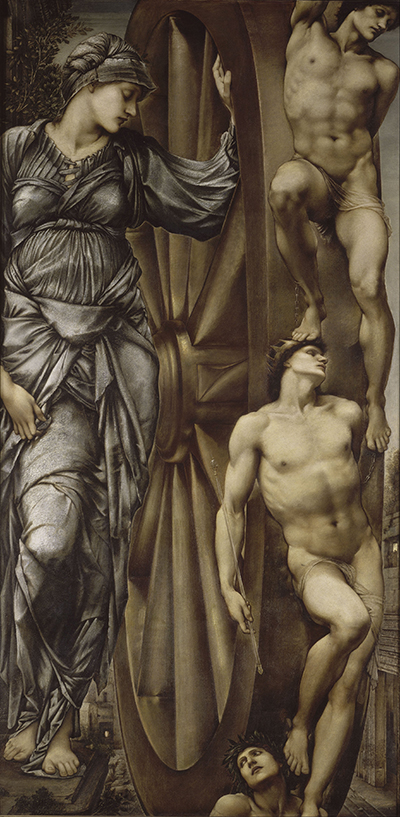There is a well of art to enjoy from the career of Edward Burne-Jones in the form of art print reproductions, be it direct copies of his paintings to photographs of his tapestries and stained-glass window designs.
Many have summarised the artist's career as being a part of the Pre-Raphaelite movement and therefore classified print reproductions of his work alongside the likes of Waterhouse, Millais, Holman-Hunt and Rossetti. In reality, that only tells one part of his story, and his production was far more diverse than the others mentioned here. Burne-Jones' career in truth had more in common with Arts and Crafts enthusiast, William Morris. These talented British men were both craft-focused rather than concentrating on being professional artists. As a result, their integrity has always been respected, whether you are a fan of their work or not.
Some art critics had earlier described his work as too feminine but the 20th century marked a point at which more styles and diversity of approaches became accepted and appreciated. Art for art's sake was no-longer a problem and also more women themselves would purchase art prints. This helped to promote their work of Burne-Jones as well as other Pre-Raphaelites. You will also see the same with the illustrative flourishes of Alphonse Mucha and Gustav Klimt too. Many of those adding art prints to their own homes are not looking for deeply-thought out symbolism or surrealism, but just an accessible image that immediately grabs you.
Edward Burne-Jones was a prolific artist, meaning there is plenty of choice from his career output. He would famously be in his studio by 9am every morning and not leave until late, other than for a short lunch. He had so many things to explore as an artist, and his desire to make use of traditional techniques perhaps meant he needed more time than others. In order to learn so many different types of art forms, too, he would need time to understand and develop his techniques in each as opposed to those who purely specialised in one and could therefore just concentrate on output having learnt the necessary skills in their younger days.




